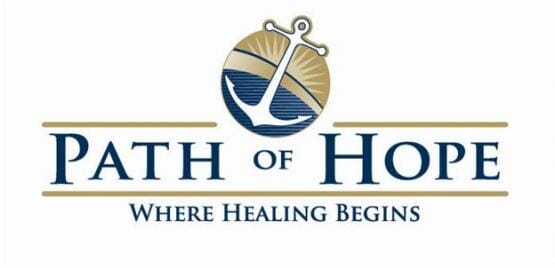Path of Hope is a drug and alcohol treatment center located in Lexington, North Carolina. The facility offers residential care that’s evidence-based and focused on 12-Step facilitation. A variety of modalities are incorporated into treatment, including motivational enhancement therapy, the Matrix Model and Stephanie Covington’s Trauma Model. Clients learn how to accept responsibility for their actions and develop the healthy coping skills essential for a rewarding life in sobriety.
ABOUT PATH OF HOPE
Path of Hope of Lexington, N.C. was founded in 1976 as a men’s halfway house. Today, Path of Hope operates two residential, gender-specific substance abuse treatment facilities, one for men and one for women, as well as sober living facilities. Services are provided from a quiet, residential area three miles outside of central Lexington. Path of Hope does not offer medical detox, and prospective clients must be sober for 72 hours before arriving for treatment.
TREATMENT & ASSESSMENT
The treatment approach of Path of Hope is based on the concept that treatment must address the physical, mental, and spiritual effects of addiction to be successful. The program lasts 28-days. To treat its clientele, Path of Hope combines the 12-step model of recovery with evidence-based treatment modalities.
To get into treatment, clients must complete the admissions packet and apply in person. Clients that take daily medications need a signed statement from their doctor, as well as a 30-day supply of medications. Clients must be off of any non-prescription substances for at least 72 hours before being admitted to the program. However, Path of Hope does not require clients to participate in a detox program before attending.
Path of Hope offers gender-specific treatment services for men and women. In North Carolina, 46.8% of facilities offer treatment specifically for women, while 42.5% of facilities offer treatment specifically for men.
Although programming at Path of Hope is not faith-based, the facility’s website indicates that the day begins with a short, inspirational reading before breakfast. After breakfast, clients complete chores and begin a full day of programming, which includes educational lectures, group therapy, therapeutic recreation, and individual counseling sessions.
Family participation is encouraged, but visitation is limited to Sundays. During this time, education sessions for families are held during visitation on Sundays, and family therapy sessions are available upon request.
The sober living facilities require a minimum commitment of six months. Applicants must provide treatment records, including their psychosocial history, and agree to participate in a licensed substance abuse program that performs community volunteer work.
STAFF CREDENTIALS
Path of Hope employs licensed, certified staff members with experience in addiction treatment. Alternatively, staff members can be registered with the North Carolina Substance Abuse Professional Practice Board, which 63% of the facilities in the state have a similar requirement. Path of Hope also employs volunteers that are in recovery themselves. The five alumni polled by Best-rehabs.com to date on the staff’s level of training and experience praised the staff’s aptitude.
Staff Experience and Training: 4.6/5
ACCOMMODATIONS & AMENITIES
The facilities at Path of Hope are gender-specific. Clients stay in a halfway house or a sober living facility that is designed for large groups. Kitchen and laundry facilities are available on-site. Other resources, such as educational and vocational resources, may be available based on the needs of the client. Clients may not bring electronic devices such as laptops and cellphones, but smoking is allowed in designated areas. The five alumni polled on the matter approved of the facility’s overall cleanliness.
Facility Cleanliness and Upkeep: 4.8/5
WHAT ALUMNI SAY
At the time of this writing, the seven alumni that provided feedback about Path of Hope gave positive feedback for the facility. Several alumni noted that they had achieved lasting sobriety and felt that the program was life-saving. “I feel this treatment facility saved my life,” alum Sherry wrote.
Reviews painted a picture of treatment strongly rooted in the 12-Steps, with good counselors and a firm structure, which gave residents a good sense of direction. “Gives you the tools to be free from from addiction,” one alum wrote.
Alumni generally feel that there was an adequate amount of family participation, and a majority of alumni reported that they’d strongly recommend the facility to others. In addition, alumni generally approved of the facility’s cost.
Family Participation: 3.8/5
Affordability: 3.7/5
Of the two alumni that provided feedback about the facility’s holistic offerings, one gave the facility a two-star rating and the other gave a five-star rating. Sherry felt that the organization needed a “larger capacity for women,” while Lisa cited the “no faith base” programming as a facility weakness.
Secondary review sites revealed overwhelmingly positive reviews for the facility. On its unofficial Facebook page, Path of Hope has 10 five out of five star reviews. Reviewers often credited the treatment program for their continued sobriety. Alumni also praised the staff. “Real people who really care about you,” one representative reviewer wrote.
On CiteHealth, the facility received five positive reviews and two negative reviews, with an average rating of four out of five stars. The positive feedback praised the caring staff. Of the negative reviews, both alumni were asked to leave prematurely. One anonymous reviewer was not able to attend off-site therapy appointments for their co-occurring disorders.
On Google, Path of Hope Inc earned six five out of five-star reviews. Reviewers discussed the effective treatment program and the caring staff. “Some of the most caring and dedicated professionals that I have ever had the pleasure of meeting!” one representative reviewer wrote.
FINANCING
Path of Hope is in-network with a range of private insurers. Treatment is subsidized by donations to the organization, as well as funding from The Cities of Thomasville and Lexington, the United Way of Davidson County, and individual groups and contributors. Rent at the sober living facility is $125 per week, and the costs for the 28-day residential program is $3,220.
